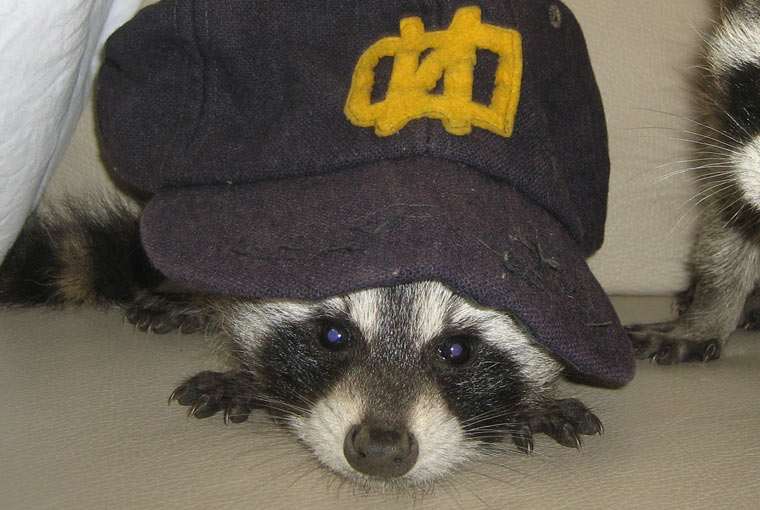- info@wildlife-removal.com
Call us for help in your town
Wildlife Removal Education
Raccoons - Do they make a good pet?
Need raccoon removal in your hometown? We service over 500 USA locations! Click here to hire us in your town and check prices - updated for year 2020.
There are two sides to this story, as there are with most things in life. Let's start with the good side.

Also read about:
What should you do if you find a baby raccoon on its own?
I found a baby raccoon. Should I feed it?
Do raccoons make a good pet?
They're certainly intelligent enough to make a good pet, quick to learn new skills. It doesn't take a very long time for a raccoon to get used to the person who has been feeding it regularly, and raccoons that see a lot of human interaction are well known to be much more tamed than those who don't have a lot of human interaction at all. In that respect, with time, care, dedication and some serious knowledge, raccoons might just make a good pet.
Here comes the bad news …
In order to tame a raccoon enough to be able to keep it as a pet, it would need to be introduced to you and your household at a very early age. If you come across an orphaned raccoon, there's a good chance the poor little thing isn't orphaned at all. Females regularly move their offspring from one den site to another in order to keep them safe. If you wait a little while, you might just find that the mother comes back for her youngster once she realizes she doesn't have it.
If a young raccoon HAS been orphaned by its mother, or it has managed to get itself lost, it could be for a few reasons. Mothers will reject and abandon their offspring when they realize it won't survive for long, such as with disease or the "runt" of the litter. It isn't that unusual for wild animals to abandon one baby to focus all of their attention on the stronger one or ones, and some of them will even eat the rejected youngster too. Male raccoons will eat raccoon kits without a second thought. To them, it's no different from hunting and then eating a smaller rodent or mammal, such as a rat or mouse.
If you introduce that abandoned baby raccoon (rather than orphaned) into your home, you're then introducing all and any potential diseases that baby may have. Just in case you didn't know; raccoons are a big problem as far as rabies is concerned. You could bring a rabies-infected animal into your home, and that disease could easily be passed to your domesticated pets if they haven't been vaccinated, and also to other people — children, you and your partner or roommates, family, etc. A List of Raccoon Diseases
Wild raccoons are wild animals, and all wild animals ill display wild behavior at some point or another. It might be when you stop feeding that furry, masked creature its favorite treat, when the kids annoy it at nap time, or when the cat gets a little selfish with its food; a wild animal still has the potential to bite, scratch, and lash out in other ways, just because it feels like it. It is a wild animal — that's what they do.
Even a baby raccoon that is tamed at a very young point will more than likely display wild tendencies at some point in their life. It took centuries of domestication for cats and dogs to live happily and comfortably in homes. We've barely even started with raccoons. They are still very much a wild animal.
Even at a "tame" stage, raccoons are well-known for being entirely unmanageable, ridiculously unpredictable, and mischievous beyond belief. Most animals are drive by basic instincts — things like hunger, thirst, or a need to mate. Raccoons work a little differently. They are driven by those things also, of course, but they are also driven by plain and simple curiosity. Sometimes, they just really want to find out what something is, what it feels like, what it tastes like, or what happens when you try to snap it. It's starting to make pet raccoons sound a little bit like a really naughty toddler, doesn't it? That's the reality — it will be like living with a naughty toddler — one that is permanently stuck in the 'terrible two's' — forever. Chewing, fighting, scratching, breaking into kitchen cupboards to eat all the food it's not allowed to eat, escaping; you name it, this creature will do it. That's just what they do.
In a few hundred years, maybe the raccoon will make an excellent pet, but we're not quite there yet. We have barely even scratched the surface. This animal is still very much a wild one, and the actual potentially fatal diseases aside, it's not exactly one that you will want to happily invite into your home.
Go back to the Raccoon Removal page, or learn tips to do it yourself with my How to Get Rid of Raccoons guide.


















